Person-Centered Measurement: Ensuring Prioritization of Individuals’ Values, Needs, and Preferences Within the Global Contraceptive Measurement Ecosystem
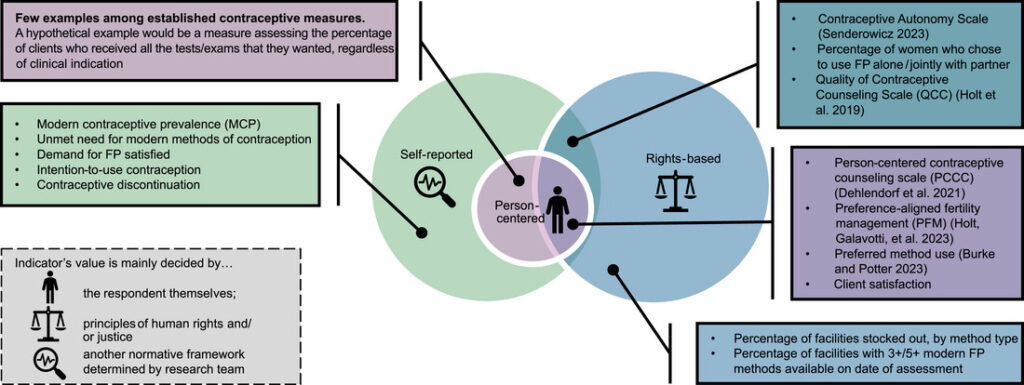
Claire W. Rothschild, Kelsey Holt, Funmilola M. OlaOlorun, Julius Njogu, Abednego Musau, Christine Dehlendorf First published: 23 June 2025 | https://doi.org/10.1111/sifp.70023 Claire W. Rothschild, Population Services International, Washington, DC 20036, USA. Email: [email protected]. Kelsey Holt, University of California, San Francisco, San Francisco, CA 94143, USA. Funmilola M. OlaOlorun, Department of Community Medicine, College of Medicine, University of Ibadan, Ibadan, Nigeria. […]
Data-driven program adaptation and continuous improvement: A case study of the Adolescents 360 (A360) project in Ethiopia, Nigeria, and Tanzania
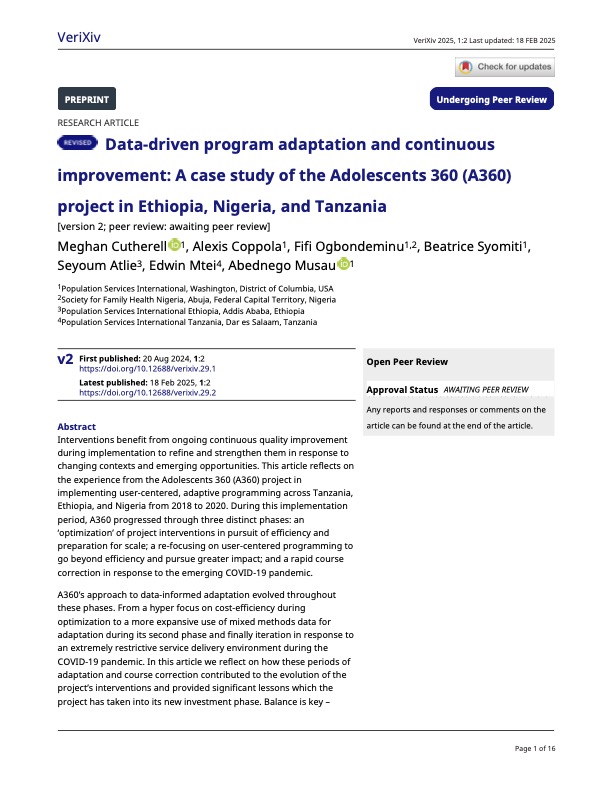
Interventions benefit from ongoing continuous quality improvement during implementation to refine and strengthen them in response to changing contexts and emerging opportunities. This article reflects on the experience from the Adolescents 360 (A360) project in implementing user-centered, adaptive programming across Tanzania, Ethiopia, and Nigeria from 2018 to 2020. During this implementation period, A360 progressed through […]
A Guide to Adaptive Implementation

A360’s guide to Adaptive Implementation is designed to be a practical tool that teams can use to optimize interventions based on what they are learning through real-world implementation. This guide introduces Adaptive Implementation and walks you through the essential steps of the process. Divided into easy-to-digest modules, the guide covers mapping your intervention, identifying learning questions, developing a monitoring plan, deciding whether to adapt, and more. Read […]
A360 Global Research and Learning Agenda (Updated May 2024)
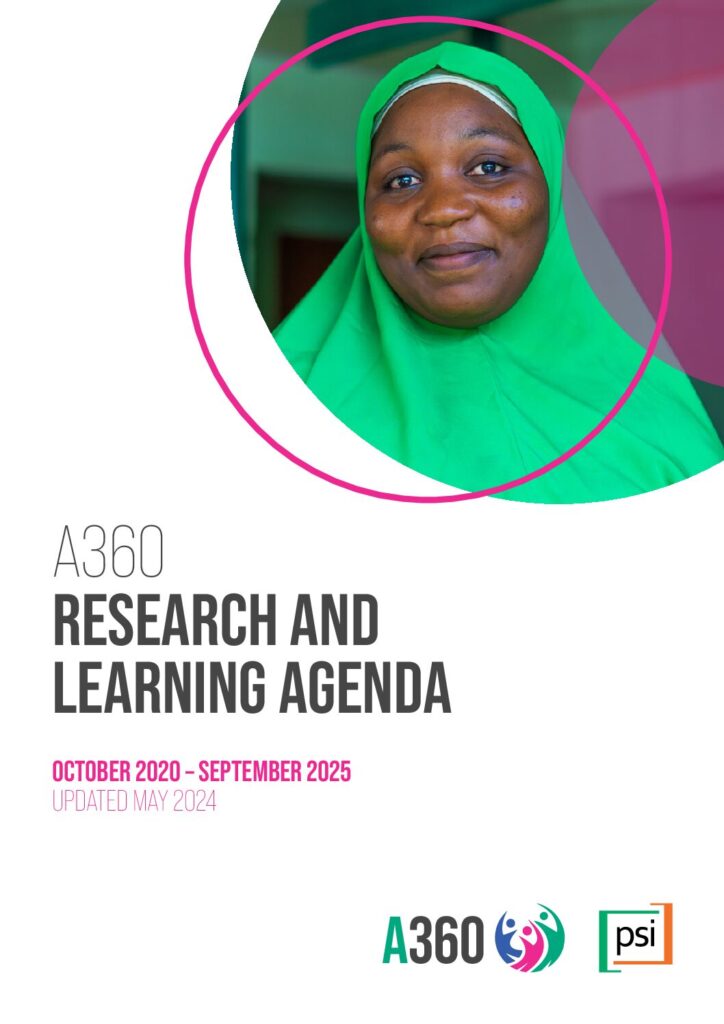
A360 is not a conventional investment in service delivery. The value of the investment in A360 will be amplified and sustained when external stakeholders at all levels can understand and apply A360’s learning. This application depends on A360 effectively testing the real-world effectiveness of its innovative approaches, successfully capturing evidence and learning from the process, […]
A360 Global Technical Strategy Description (Updated May 2024)
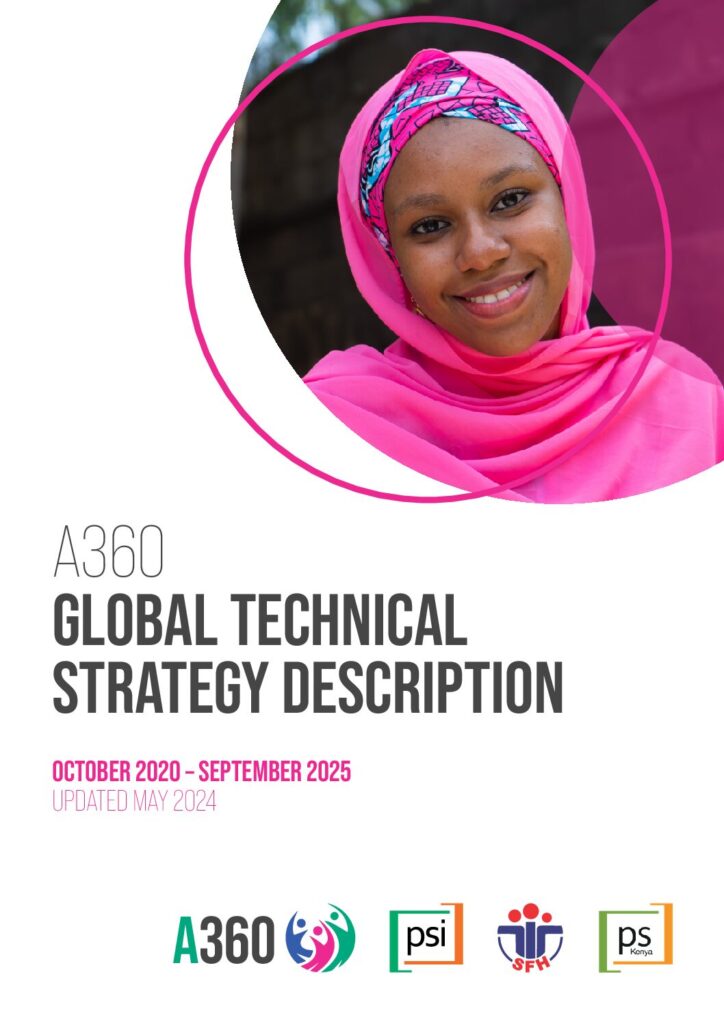
A360’s first investment phase (2016-2020) supported over 400,000 adolescent girls aged 15-19 to take up a modern method of contraception and strengthened health systems across the project’s geographies (including Tanzania, Nigeria, and Ethiopia) to be more responsive to the unique needs of adolescent girls. In 2020, the project transitioned to a second investment phase (2020-2025), […]
A360 Logic Model

This logic model lays out the specific activities and associated outcomes that A360 aims to pursue in its current investment phase (2016-2020). These activities and outcomes align with A360’s technical strategy pillars around adaptation, institutionalization, and learning.
Applying Human-Centered Design to Replicate an Adolescent Sexual and Reproductive Health Intervention: A Case Study of Binti Shupavu in Kenya

If something works in one place, it should work in another…right? In public health, it’s not usually that simple. Different people, different health systems, and different challenges mean evidence-based practices do not always translate easily. In a new article from Global Health Science and Practice, we share A360’s experience using human centered design as a framework to guide replication efforts for girl-centered, SRH programming in Kenya.
Preference-aligned fertility management: Assessing the feasibility of a newly proposed measure of contraceptive autonomy among married adolescent girls in Kaduna and Nasarawa states, Nigeria
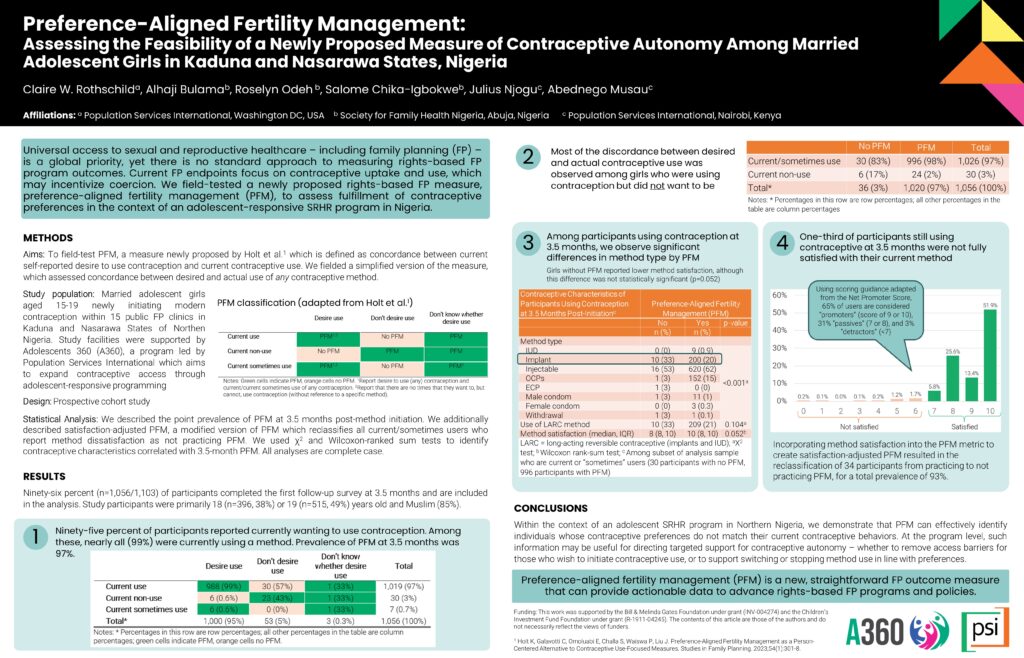
This poster presentation, shared at the Society for Family Planning (SFP) meeting in 2023 showcased results from field-testing of preference-aligned fertility management (PFM), a measure newly proposed by Holt et al.1 which is defined as concordance between current self-reported desire to use contraception and current contraceptive use. We fielded a simplified version of the measure, […]
